“Energy is the only universal currency.”
–Vaclav Smil
“Energy is a very subtle concept… very, very difficult to get right… we have no knowledge of what energy is.”
–Richard Feynman
2025 IMA Class
The 2025 IMA week-by-week syllabus contains information for this year’s undergraduate class, including a weekly schedule of assignments and topics.
The 2025 ITP weekly syllabus is here.
Overview
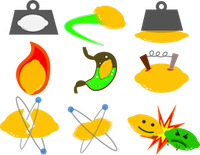
[ITPG-GT2466] Official course description:
From the most ephemeral thought to the rise and fall of civilizations, every aspect of your life, and indeed the universe, involves energy. Energy has been called the “universal currency” by prolific science author Vaclav Smil, but also “a very subtle concept… very, very difficult to get right” by Noble physicist Richard Feynman. It is precisely this combination of importance and subtlety that motivates the Energy class at ITP. Maybe you fear the existential threat of anthropogenic climate change, or maybe you just want your pcomp projects to work better. Either way, the class will help you understand energy quantitatively and intuitively, and incorporate that knowledge in your projects (and perhaps your life).
How? Building on skills introduced in Physical Computing and Creative Computing, we will generate and measure electricity in order to see and feel energy in its various forms. We will turn kinetic and solar energy into electrical energy, store that in batteries and capacitors, and use it to power projects. We will develop knowledge useful in a variety of areas, from citizen-science to art installations, and address topics such as climate change and infrastructure access through the lens of energy. Students will build a final project using skills learned in the class.
Prior Physical Computing/Creative Computing or equivalent experience required.
Contact
jfeddersen [at] gmail [dot] com or jeff.feddersen [at] nyu [dot] edu
Goals
- Incorporate energy-literate thinking into your professional and personal life, to help you have a positive impact on global energy challenges such as climate change.
- Develop a broad perspective and nuanced understanding of energy sources and flows.
- Become well-versed in the current state of the art in energy conversion and storage, as well as relevant near- and far-term technologies.
- Gain the technical skills necessary to create projects utilizing ambient energy supplies, and to measure and monitor the energy use in those projects. These will include:
- Understanding energy units
- Researching and estimating power and energy
- Measuring power and energy (especially electrical)
- Circuits for conditioning and storing electrical energy
- Sourcing energy-related components
- Execute thoughtful projects that demonstrate a grasp of energy concepts.
Resources
The Resources page contains extensive information on texts, blogs, podcast and videos related to the class in the “Information” section. It also has details on materials, tools, parts and supplies useful in this class, as well as methods for measuring and analyzing.
Gallery
The Gallery contains examples of past student work and energy related projects.
Past Sessions
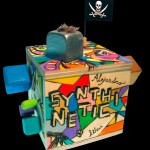
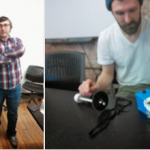
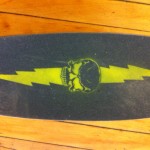
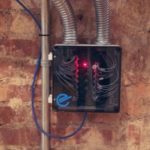
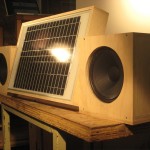
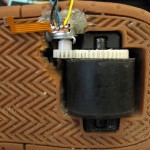
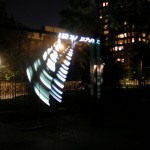
ITP Camp 2024, Spring 2024, Spring 2023 ITP, Spring 2023 IMA, Spring 2022, Spring 2021, Spring 2019, Spring 2018, Spring 2017, Spring 2016, Spring 2015, Spring 2014, Spring 2013, Spring 2012, Spring 2011, Spring 2010, Spring 2008, Spring 2007 and Fall 2004.
NYU Policy Statements
STATEMENT OF ACADEMIC INTEGRITY
Plagiarism is presenting someone else’s work as though it were your own. More specifically, plagiarism is to present as your own: A sequence of words quoted without quotation marks from another writer or a paraphrased passage from another writer’s work or facts, ideas or images composed by someone else.
Collaboration is highly valued and often necessary to produce great work. Students build their own work on that of other people and giving credit to the creator of the work you are incorporating into your own work is an act of integrity. Plagiarism, on the other hand, is a form of fraud. Proper acknowledgment and correct citation constitute the difference.
Link to the Tisch Student Handbook
Link to Suggested Practices for Syllabus Accessibility Statements
AI STATEMENT
You should treat AI tools just as you would any other source: cite the source and note how it was used (Harvard has a useful guide to citation of AIs). You should be prepared to explain how your use of it is the appropriate tool to fit your goal or concept and does not detract from your experience meeting the learning objectives of the assignment or course. There are some cases where the use of AI may fall under a form of plagiarism. Differentiate your work from your source’s work in a way that’s clear to the reader or viewer. Additionally, you should be prepared to discuss the ethical concerns around the widespread use of emerging AI tools.
STATEMENT ON ACCESSIBILITY
It’s crucial for our community to create and uphold learning environments that empower students of all abilities. We are committed to creating an environment that enables open dialogue about the various temporary and long-term needs of students and participants for their academic success. We encourage all students and participants to discuss possible accommodations that would best support their learning with faculty and staff. Students may also contact the Moses Center for Student Accessibility (212-998-4980) for resources and support. Link to the Moses Center for Student Accessibility
STATEMENT ON COUNSELING AND WELLNESS
Your health and safety are a priority at NYU. Emphasizing the importance of the wellness of each individual within our community, students are encouraged to utilize the resources and support services available to them 24 hours a day, 7 days a week via the NYU Wellness Exchange Hotline at 212-443-9999. Additional support is available over email at wellness.exchange@nyu.edu and within the NYU Wellness Exchange app. Link to the NYU Counseling and Wellness Center
STATEMENT ON USE OF ELECTRONIC DEVICES
Laptops and other electronic devices are essential tools for learning and interaction in classrooms. However, they can create distractions that hinder students’ ability to actively participate and engage. Please be mindful of the ways in which these devices can affect the learning environment, please refrain from doing non-class oriented activities during class.
STATEMENT ON TITLE IX
Tisch School of the Arts is dedicated to providing its students with a learning environment that is rigorous, respectful, supportive and nurturing so that they can engage in the free exchange of ideas and commit themselves fully to the study of their discipline. To that end, Tisch is committed to enforcing University policies prohibiting all forms of sexual misconduct as well as discrimination on the basis of sex and gender. Detailed information regarding these policies and the resources that are available to students through the Title IX office can be found by using the following link: Link to the NYU Title IX Office
STATEMENT OF PRINCIPLE
Teachers and students work together to create a supportive learning environment. The educational experience in the classroom is one that is enhanced by integrating varying perspectives and learning modes brought by students.